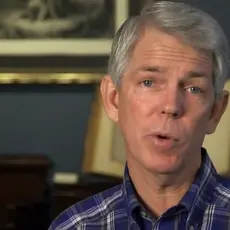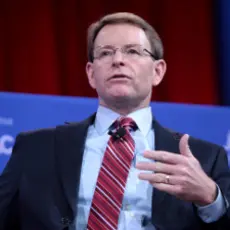Religious Right leaders are intent on being the ones to pick the Republican presidential nominee this time around and they’re throwing their collective weight behind Ted Cruz.
The movement’s leaders have been seething for eight years now that they were forced to rally behind Republican presidential candidates they weren’t excited about — John McCain in 2008 and Mitt Romney in 2012. After years of angling to prevent that from happening in 2016, “several dozen” Religious Right leaders met in secret in early December and voted to rally around Ted Cruz.
Ctrl+Click or tap to follow the link">National Review’s Tim Alberta describes the event, which Cruz backers entered with the upper hand. It took five ballots for Cruz's supporters to browbeat backers of Marco Rubio into submission and give Cruz the three-quarters supermajority needed. Those who attended the meeting had vowed to either publicly support the eventual winner of the day’s balloting or to remain silent in the Republican primary. Reports Allen,
The impact was felt immediately on the 2016 campaign. Three prominent participants — direct-mail pioneer and longtime activist Richard Viguerie, the National Organization for Marriage’s Brian Brown, and The Family Leader’s Bob Vander Plaats – announced their support of Cruz within 72 hours of the meeting at the Sheraton.
Cruz, of course, had plenty of conservative evangelical support before this meeting. We noted back in the summer that he was consolidating support from the Christian Nation crowd, including discredited “historian” David Barton — who heads a Cruz super PAC — and billionaire fracking brothers Farris and Dan Wilks — who have pumped $15 million into the pro-Cruz super PAC effort. Since then, Cruz has been holding and attending “religious liberty” events — including one hosted by a pastor who calls for the execution of gays, and one at Bob Jones University, famous for claiming religious backing for its racial segregationist policies.
Cruz openly promotes the efforts of Christian-nation zealot David Lane to “take back” the country by using pastor-candidates to mobilize high evangelical turnout. Cruz told American Family Association’s Tim Wildmon this summer, “Nothing is more important in the next 18 months than that the body of Christ rise up and that Christians stand up, that pastors stand up and lead.”
Lane, who matches Cruz’s contempt for “establishment” Republicans, said back in 2013, “We’re going to try to eliminate the stuff that [GOP leaders] do to us every four years, which is picking somebody who has no chance of being viable and they kill us off and we have the McCains and the Romneys left.” Lane had cheered attacks on Romney’s faith and the “false god of Mormonism.”
Cruz has been courting Religious Right activists for years, even before the underdog, Tea Party-fueled victory in the GOP primary that propelled him into the U.S. Senate. Back before that election, he told the Freedom Federation’s Awakening conference, “we are engaged in spiritual warfare every day.” That message hasn’t changed: Just last week his campaign’s “prayer team” was told that “we’re in a spiritual battle today as never before.”
For the Religious Right, what’s not to like about Cruz? His anti-gay, anti-choice, and anti-government bona fides are unquestionable. His father, Rafael Cruz, an unabashed Christian-nation extremist and anti-gay bigot who says that it is God’s plan for his son to be president, makes an effective ambassador for Cruz to the far right.
Is anyone not jumping on the Cruz bandwagon? A group of Latino Republicans held a press conference yesterday to denounce Cruz for his anti-immigrant positions — which they said were the same Romney “self-deportation” policies by another name — and for Cruz’s support of Donald Trump’s bigotry.
The Family Research Council’s Tony Perkins, a leader of the effort to get the Religious Right to rally around a single candidate, has tried this before, without much success. In 2012, Perkins and other conservative evangelicals had tried to create unity around a single alternative to Romney. Perkins declared after a January 2012 gathering that Rick Santorum had emerged with a “strong consensus.”
But the voting process and outcome were disputed by Newt Gingrich supporters, and the idea that evangelical leaders could deliver their followers to Santorum was undermined when Gingrich won the next event, South Carolina’s primary. Richard Viguerie, among others, urged Gingrich to drop out in order to boost Santorum’s chances. In the end, Santorum went on to win other southern primaries but couldn’t catch Romney.
In January 2012, after he won that supposed consensus endorsement for Santorum, Perkins dismissed suggestions that the meeting was too late to have an impact, even though it came after Romney had already won Iowa and New Hampshire and was building up a head of steam. Perkins clearly decided not to let that happen again.








